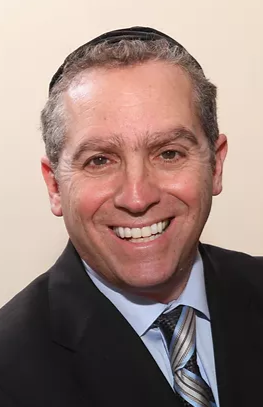
The first Pasuk in Shof’tim begins with these words: "Shof’tim ve shot’rim titen lecha be’chol shearecha asher Hashem elokecha noten lecha lishvatecha veshaf’tu et ha'am mishpat tzedek." The literal translation is: "Judges and officers shall you appoint in all your cities, which Hashem, your G-d, gives you, for your tribes."
Rambam sounds an alarm in his comment on this passage. He explains that if not for these laws, and without judges to hear cases between brothers, and if there is a breakdown of respect for the interpretation of the laws, then the downfall of the nation Has V’shalom might not be far behind, because such a breakdown would lead to anarchy, with the Torah being fragmented into many Torahs.
Civilization today is the beneficiary of many things from our Torah, including the court system, as the Seven Laws of Noah dictate. In the secular courts of today there is much corruption and bribery. It is said of bribery, that it blinds the eyes of the judges, for the bribe makes it impossible for them to see the truth.
I remember learning about this in Pirke Avot with Rabbi Ozeri many years ago. He told us a story about a man who needed to come before a judge. As he approached the judge he began to dust off his lapel. The judge said: "I'm sorry, but I cannot judge your case now!” The man asked, "Why not?" The judge answered, "Because now I like you a little more than the other fellow."
The Shelah Hakadosh has another interpretation. He comments that the"judges in all our cities" is a reference to the judges at the gates of our bodies. Our ears have ear lobes which act as gates to protect us from hearing Lashon Hara, our eyes have eyelids as a gate, so we don't see what we shouldn't be looking at and which may not be proper, our mouth has two gates, our teeth and lips, to protect us from speaking Lashon Hara and to also protect us from eating food which is not kosher.
The Hidah cites a similar interpretation by Rav Haim Vital, that our gates are our sense organs, through which we receive information from the outside world. We may feel that we are in total control of our behavior and there is no danger of being influenced by the things that we hear or see around us. That’s a big mistake, because every single thing we are exposed to in the media and which surrounds us has a tremendous direct and subliminal influence on our senses.
According to Rabbi Twersky, many studies have conclusively proven that children who are exposed to violence on television are more prone to behave violently. Seeing or listening to immoral stimuli will definitely influence our moral values. As the Torah warns us in Parashat Shelah, Perek 15 Pasuk 39: "This shall be fringes for you, and when you see it, you will remember all the commandments of the Lord to perform them, and you shall not wander after your hearts and after your eyes after which you are going astray.”
This is especially relevant to our society today, with all that's available at our fingertips on the Internet. I heard Rabbi Shor speak about this topic once and he said that we have a bigger test today than the previous generations because they weren't as exposed as we are, through all the different media, to the decadence of today's society. The Rabbi was clearly warning us to be very aware of this. He suggested that if we can insulate ourselves and our families from these negative forces successfully, we may even be able to reach a higher level than the previous generations because we are possibly tested today more than ever before.
We learn from this that we must constantly be aware of the need for "judges and officers" who sit at the portals of our minds in order to protect us from improper influences. We must give very serious consideration to what we see and read through our own personal "gates" and what we allow to enter our homes.
The Perashh goes on to say, in Perek 17 Pasuk 9: "Ubata el ha’kohanim ha’lviyim ve'el ha’shofet asher yihiyeh bayamim hahem." "You shall come to the Kohanim, the Levites and to the Judge who will be in those days."Rashi comments on this that even if the Rabbis of our days are not equal to the Rabbis of previous days, we must obey them because all we have are the Rabbis and judges of our time. Rabbi Shmulevitz expands on this to say that Hashem will always provide us with Rabbis and leaders who are suited to our particular generation. In other words, the Rabbis that we have today are tailor-made for us.
Our community was Zocheh to have Rabbi Jacob Kassin A'h and his son-in-law Hacham Baruch ben Haim A'h among other great Rabbis who had the wisdom to look after our community with great Sechel (intelligence) as we were going through the growing pains of becoming a more observant community. I heard Rabbi Ozeri say many times: "What do you do if you see someone driving in his car on Shabbat? Do you throw a rock at his car? No, you throw him a Kibbeh and invite him in for a Shabbat meal in your house. When he sees how wonderful Shabbat is, he will never turn back."
There's a story that's not unique to our community about a man who walked to shul on Shabbat mornings and then hired a driver to take him to his store. One Shabbat a friend of his approached him after shul, and said, "Please come to my house before you go on your way and have a drink and some Mazza with me and then go to work." The man accepted the invitation, and as the visit was most enjoyable, he got carried away and became a little light-headed from the liquor.
He therefore decided to stay home from work that Shabbat. The next week his friend made the same offer but this time he declined, saying, "I’m sorry, but I can't let what happened last week happen again." His friend insisted: "Just come for ten minutes and then you can go to work." Again he agreed and again he never made it to work. From that day on, he became a committed Shomer Shabbat!
So don't think for a minute that it would have been better if we lived in another time when we would have had different Rabbis who would have guided us differently, because Hashem ensures that we have the Rabbis we need and who are perfect for the needs of our generation: "bayamim hahem, baz’man hazeh" – in our time.
Lastly, it says in Perek 18, Pasuk 13: "Tamim tihiyeh im Hashem Elokecha.” "You shall be wholehearted with Hashem, your G-d." Rashi comments on this, that we should follow Hashem with perfect faith, without feeling that we need to know what will happen in our future. Alshich interprets this Pasuk to mean that one should be sincere in his observation of Torah, even when one is alone with G-d and when no one else is around to see what one is doing!
Our devotion to Hashem should be whole and not fragmented. If you do some things for G-d and other things for yourself, then you are not being wholehearted with G-d . Some people may act very religious in shul and other public places, but in the confines of their home they can stray from that religious facade. Maybe they have a temper at home or don't give proper attention to their family. Or they might be diligent in their prayers but may be ruthless and unethical in their business dealings. We have to know that Hashem sees us and only He is our ultimate judge, so we never have the right to judge others.
The Pasuk reinforces this: "Be wholehearted with Hashem." In other words, we must be wholehearted with ourselves, and always have Hashem in our thoughts, every second of the day, so that we can be one with G-d and not stray from that path of Emet (truth). Rabbi Diamond always taught us that one way to accomplish this wholeheartedness is to perform an act of Hesed each day without anyone ever knowing about it. You will then truly feel at one with Hashem!
May we seek only justice between our fellow Jews and avoid distorting justice in any way. May we also protect the gates of our bodies to keep harmful, forbidden influences from entering our lives and the lives of our families. May we also find it in ourselves to be wholehearted with Hashem and look for opportunities to do acts of kindness for others without anyone knowing about it.
Parasha perspective By Jack E. Rahmey from the teachings and guidance of Rabbi Amram Sananes.








